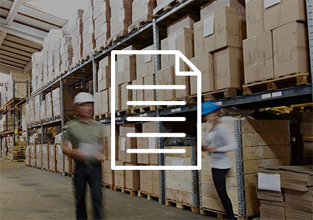Shaw Industries
Home / Shaw Industries
World’s Largest Carpet Manufacturer Launches New China Factory with Two-Tier ERP
A Berkshire Hathaway subsidiary, Shaw Industries turned to NetSuite for the launch of its new 210,000-square-foot manufacturing plant in Nantong, China, employing more than 250 workers and producing 5 million square yards of carpet tile a year for Asian markets. With its China plant, Shaw reduced the time previously required to deliver U.S.-made carpet tiles to the Asian market by several weeks. Shaw is also leveraging NetSuite to manage its 10 international subsidiaries with real-time visibility and global financial consolidation and reporting.
COMPANY
Shaw Industries
LOCATION
Dalton, Ga.
INDUSTRY
Manufacturing/Distribution
REVENUE
$5 Billion
EMPLOYEES
23,000 Worldwide
NUMBER OF SUBSIDIARIES
10
LEARN HOW CLOUD ERP CAN STREAMLINE YOUR BUSINESS.

"Because NetSuite is in the cloud, we can enter new markets faster. We’re very confident NetSuite will seamlessly support our growth outside North America."
- Shaw Industries
Expanding Chinese Operations
Global Speed to Market
- NetSuite OneWorld provides Shaw custom-developed systems at its headquarters in Dalton, Ga. in a two-tier model at a fraction of the cost of on-premise systems, while also providing support for Mandarin and multiple currencies.
- Shaw easily rolls up subsidiary financials with global financial consolidation, while gaining on-demand transparency into international operations. Shaw also streamlines production in China with NetSuite manufacturing capabilities including work orders, work in process, lot control and standard costing.
Global Financials and
Manufacturing Efficiency
Manufacturing Efficiency
Agile Global Growth
- NetSuite’s repeatable deployment model positions Shaw to quickly expand its ERP beyond existing subsidiaries in China, India, Luxembourg, Hong Kong, Singapore and Australia as its international business grows while maintaining a lean IT footprint.

































